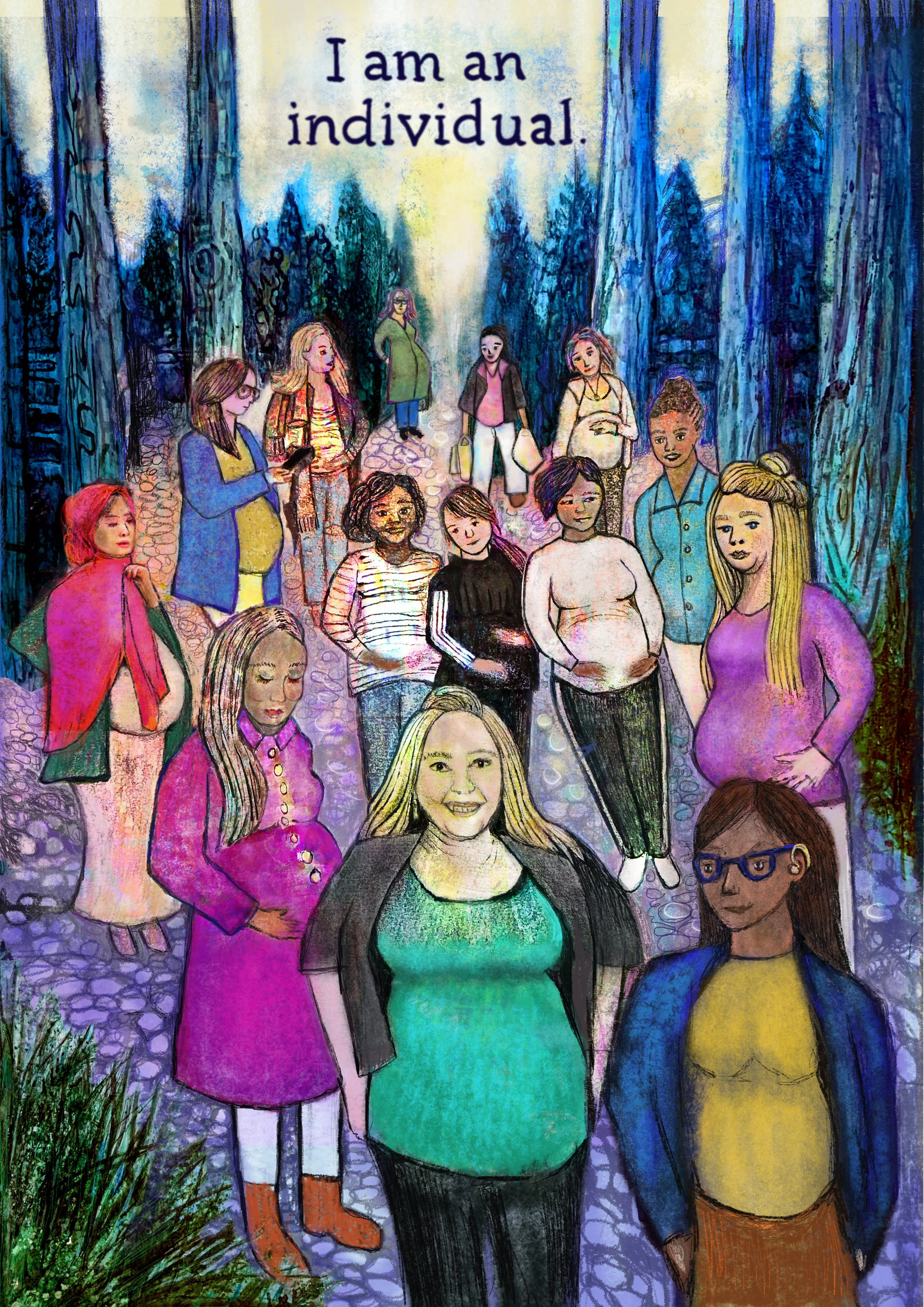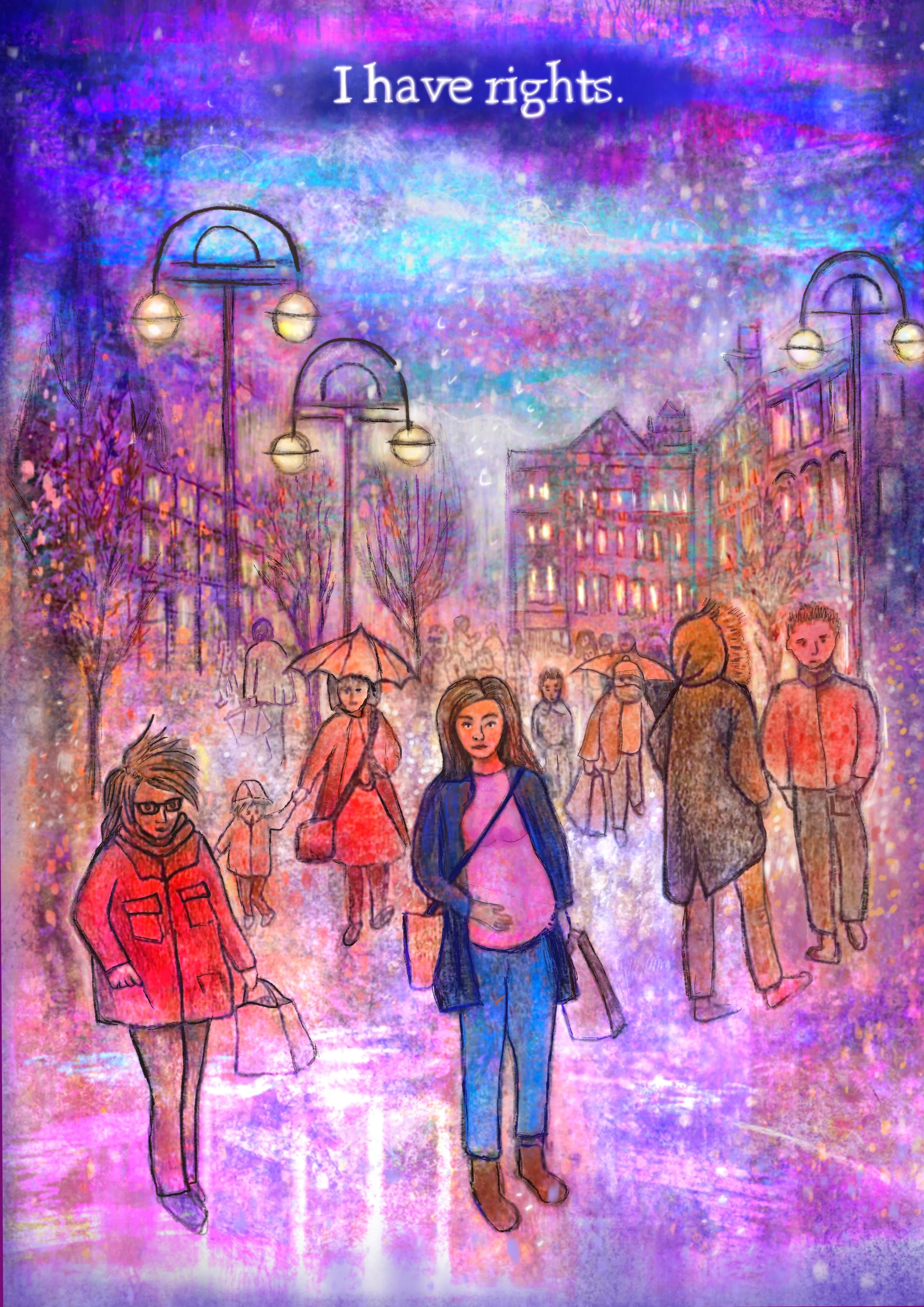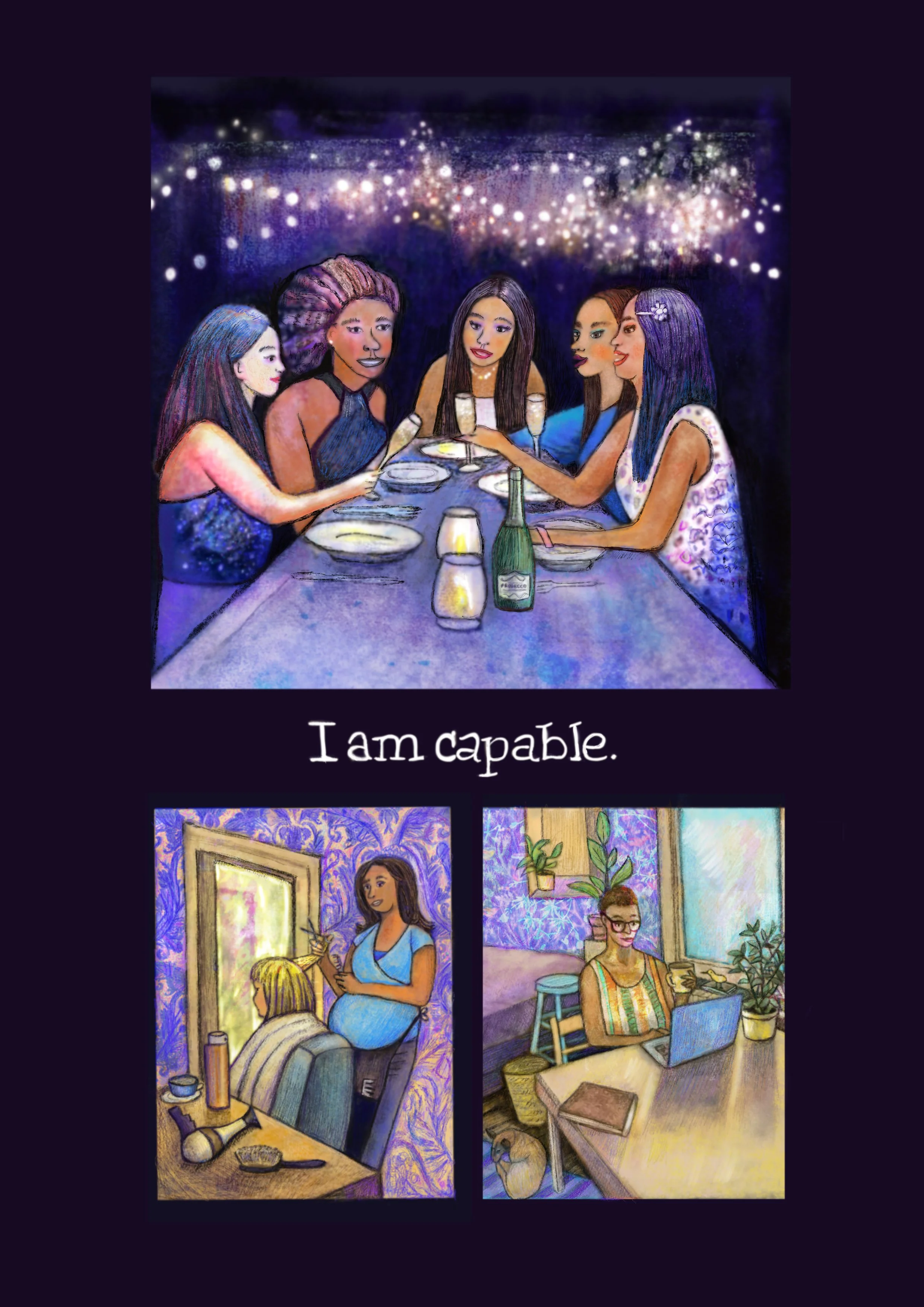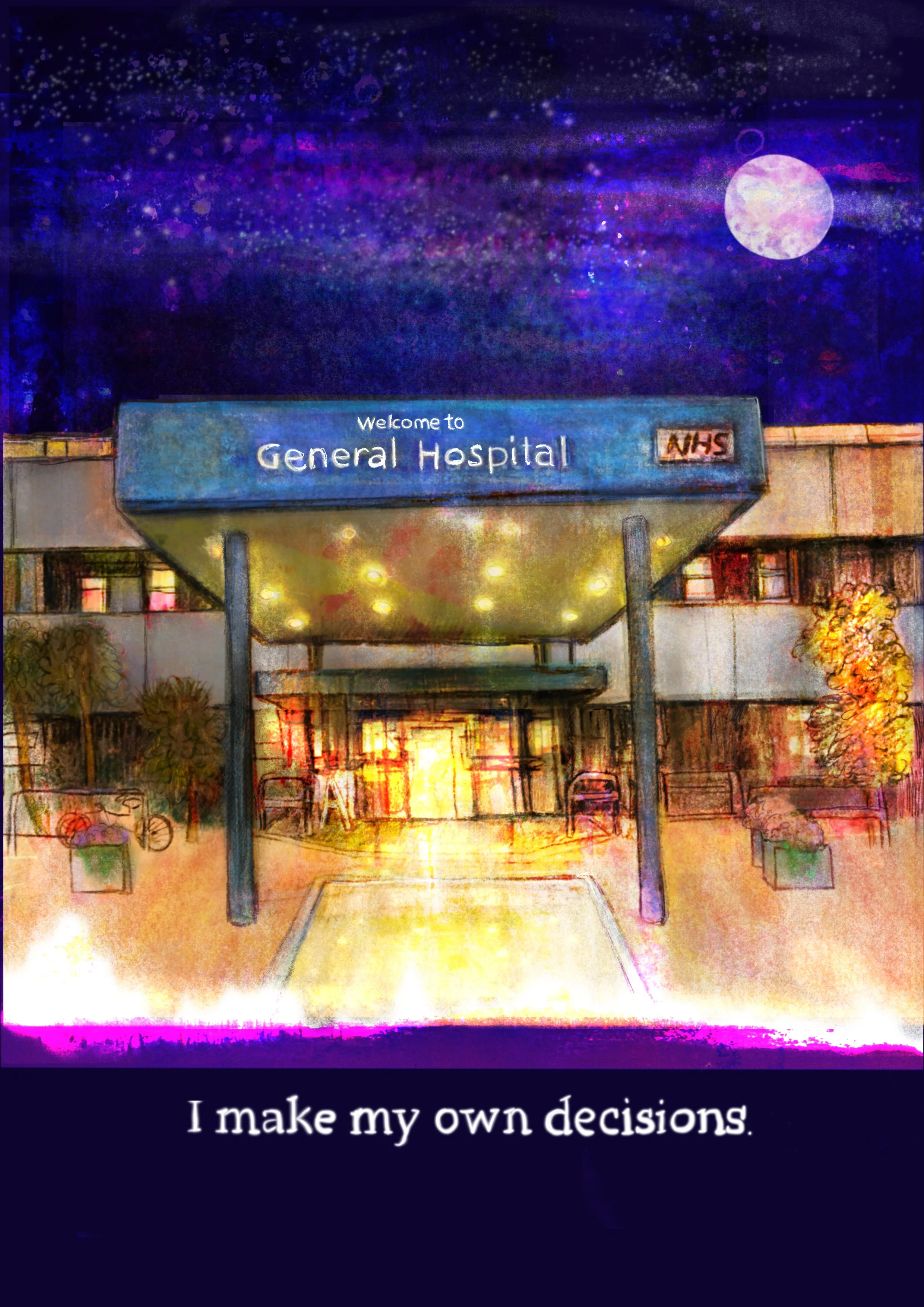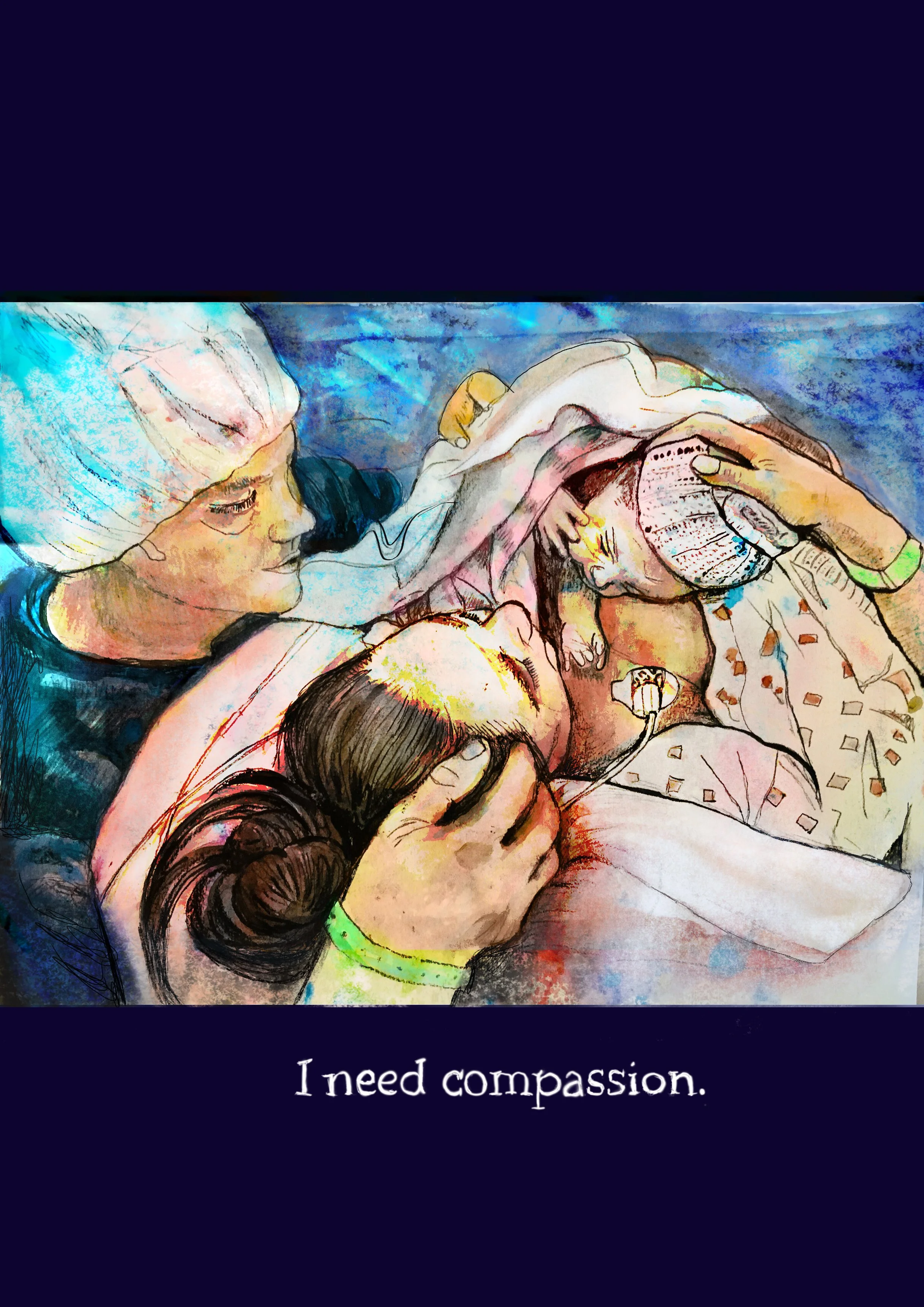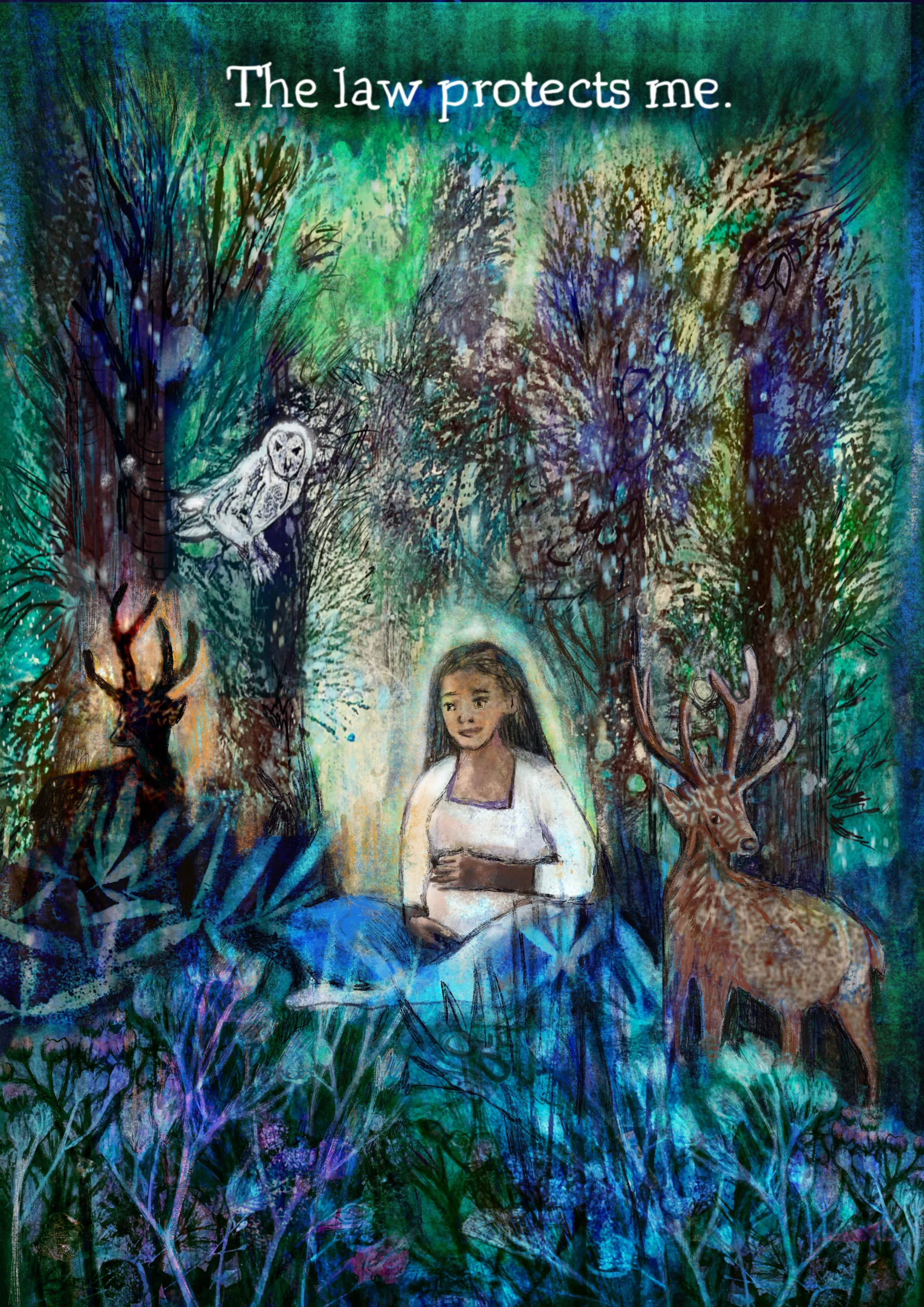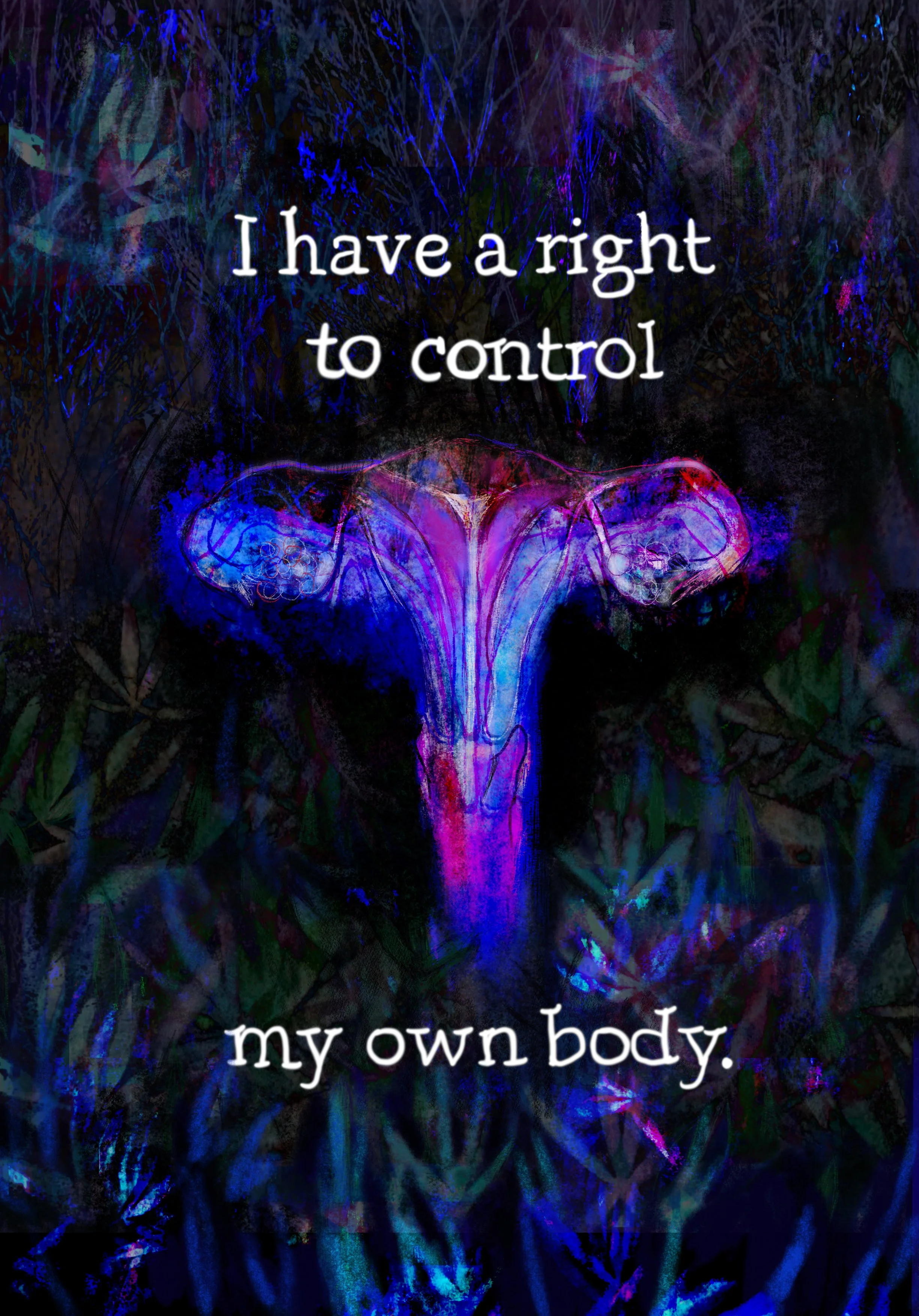
The Freebirth Study
The Freebirth Study explores the experiences of women in the UK who decided to give birth without doctors or midwives present. This page includes links to academic papers and artwork.
Freebirthing in the UK: Understanding the Lived Experience
This short film was funded by the Economic and Social Research Council as part of their Festival of Social Sciences in 2020. The aim of the festival is to promote awareness of research amongst wider members of the public. The film was made with Jana Vodickova and Calum Morrison. It presents some of the I-poetry from The Freebirth Study. Importantly, all of the interviewees had access to their poems and four participants were involved in selecting the final poems and shaping the end product. As the filming took place during lockdown, women recited the poems into their phones. The voices are from mothers, interviewees, activists, doulas and researchers.
These are images from a graphic zine inspired by women’s narratives from The Freebirth Study. The project was funded by Wellcome, ESRC and King’s College London and was supported by AIMS. Our small team consisted of Michelle Freeman, Alice Spencer, Emma Ashworth and Anne Glover.
We wanted to demonstrate that pregnant women and people have a right to autonomy and bodily integrity when accessing maternity services. From our experience and my research, we know that these rights are not always acknowledged or respected and that women may be subjected to obstetric violence. Our goal was therefore to highlight the importance of these rights in an easily accessible way.
A free e-book of our graphic zine can be accessed here.
Freebirth Articles
-

Freebirth, Unassisted Childbirth and Unassisted Pregnancy
This text is a useful overview of freebirth. It was written on behalf of AIMS for people who are contemplating freebirth and for health care practitioners who may encounter someone who has made this decision. In line with the goal of promoting human rights, it outlines the relevant law, ethics and issues that pregnant women and people may encounter when interacting with midwives and doctors. Although it does point readers to interesting academic publications, it is focussed primarily on practical considerations and ensuring that people understand their rights and remits.
-

Freebirth, Risk and the Spectre of Obstetric Violence
The Conversation asked me to write an article on the risks associated with freebirth. Given that those risks are unknown (there’s no studies on them), I instead wrote an article on the risks women are trying to avoid when they freebirth. From my own research, I know there are all kinds of risks associated with birthing in the NHS maternity system, but in this article I focus largely on obstetric violence.
-

Freebirth in the UK: A Narrative Study - Full Thesis
This document is the full PhD thesis which I wrote for The Freebirth Study. It contains the analysis of all the women’s freebirth accounts and material that is as yet not available in academic publications. It contextualises women’s testimony with exploration of obstetric violence, social condemnation and punishment for women who do not conform to expected standards of behaviour, and the laws/policies that underpin the right to freebirth. In addition, it provides a detailed approach to the Voice Centred Relational Method and the use of the ‘heroine’s journey’ as a method of presenting qualitative data.
-

Exploring the conceptualisation and study of freebirthing as a historical and social phenomenon: a meta-narrative review of diverse research traditions
A meta-narrative is a form of literature review. In this article my goal was to understand how different people in various academic disciplines had written about freebirth over time. The texts I found on the subject range from 1957 to 2018 and appear in publications in countries such as USA, Peru, Canada and The Netherlands. The topics discussed are wide ranging. They include consideration of birth trauma, the role of religion, the needs of indigenous women, stigma and the ethics of incarcerating pregnant women as a way to ensure they give birth with health carers present.
-

Freebirthing in the United Kingdom: The Voice Centered Relational Method and the (de)Construction of the I-Poem
This article is a methodology paper. It focusses in detail on how I created I-poetry from freebirthing women’s accounts of their experiences. I-poetry is part of the Voice Centred Relational Method, which is a unique way of analysing qualitative data (non-numerical data such as interviews). In short, it consists of lifting sentences from women’s accounts that include the word ‘I’ or its equivalent such as me, myself or mine. Examples of my own I-poems are included which highlight the frequently complex relationship freebirthing women have had with midwives and doctors. The poems touch on subjects such as obstetric violence, consent and the importance of respectful maternity care.
-

Undisturbed Physiological Birth: Insights from Women who Freebirth in the United Kingdom
This article was written with Dr. Elsa Montgomery, who is a midwife and academic. In this paper we wanted to explore how women give birth when they have no direction or guidance from health carers and can rely only on instinct. Women’s accounts of freebirthing provide a unique opportunity to explore this way of birthing, which we termed ‘undisturbed physiological birth.’ We compared women’s accounts to existing medical and midwifery literature. Surprisingly, we discovered that many of the phenomena that freebirthing women recalled – such as the fetus ejection reflex – had never been properly researched and did not form part of maternity texts. Our argument concluded that there needs to be more research on undisturbed physiological birth as this provides the benchmark of ‘normality.’ Without this, women could be subjected to medical interventions unnecessarily.
-

Understanding Consent in Maternity Care: Offers, Threats, Manipulation and Force
When women recounted their freebirthing narratives many would recall midwives and doctors acting unethically and sometimes even unlawfully. This article takes four examples from the interviews and uses them to explain the philosophical underpinnings of good, ethical and lawful maternity care. This is particularly relevant when midwives propose people undergo any form of medical intervention. The primary focus of the paper is on consent. It explores how midwives can ensure consent is freely given and not ‘extracted’ from pregnant women and people via coercive means such as threats, manipulation or force.
The article was originally published in The Practising Midwife, which is a subscription only journal and the link can be found here. A Word version of the article can be found here.
-

Learning from Obstetric Violence in UK Births at Home
When researchers discuss and write about obstetric violence they typically refer to acts carried out on women in hospitals and other maternity units. However, in the Freebirth Study women provided examples of obstetric violence occurring in their own homes. This article explores what that means for the definition of obstetric violence, especially if the UK were to follow the example of other countries and legislate against it.
The article was published in the Journal of Gender Based Violence which is subscription only and the link can be found here. If you don’t have a subscription, you can read a word version by clicking the Read More button.
-

Quest Narratives and Heroine Journeys: the road to freebirth and the joy of undisturbed physiological birth
This article explores the use of Quest Narratives and Heroine Journeys to present women’s experiences of freebirth and undisturbed physiological birth. Quest Narratives and Heroine Journeys are literary techniques that appear in storytelling from across the globe. Using quotes and poetry, the paper also provides insight into women’s experiences of obstetric violence, freebirth preparation, use of doulas and feelings post-freebirth.
-

Editorial: Learning from The Freebirth Study
In the light of insights provided by interviewees during The Freebirth Study, this editorial explores the importance of health carers endeavouring to really listen to women during consultations. As highlighted by interviewees, this is particularly important when people make atypical health decisions. The editorial explores the medical paradigm in which health carers often view decision making and the tension this may create when people make decisions based on much broader aspects of their lives. The article appears in a subscription only journal, but a PDF copy can be accessed in the tab below.
-

Between a Rock and a Hard Place: Considering “Freebirth” During Covid-19
This article comes from a study conducted by Dr. Mari Greenfield and which included written contributions from myself and Dr. Sophie Payne-Gifford. Dr. Greenfield carried out a large survey exploring the ways in which people’s birthing plans had altered as maternity provision changed during the outbreak of the pandemic. Of the 1,700 responses, 72 people mentioned they were considering freebirth. This was a surprising number, and the article explores people’s experiences and motivations whilst also providing insight into the demographics of people who considered making this atypical birthing decision.
-

Induction of labour should be offered to all women at term: A dangerous position to advocate
This is a letter that I had published in the British Journal of Obstetrics and Gynaecology. It was in response to a disturbing opinion piece which advocated offering induction of labour to all women once they reach 40 weeks of pregnancy. In the letter I argue that for too long obstetrics has focussed on numbers, mortality rates and cost-utility benefits at the expense of women’s voices and experiences. As a result, to advocate routine induction in this way is dangerous and problematic. What is both interesting and telling about this debate is that the journal has chosen to publish the article promoting induction of labour as open access, whilst publishing critiquing responses behind a paywall. Nevertheless, for those without a subscription, a PDF copy of my letter can be found here.


